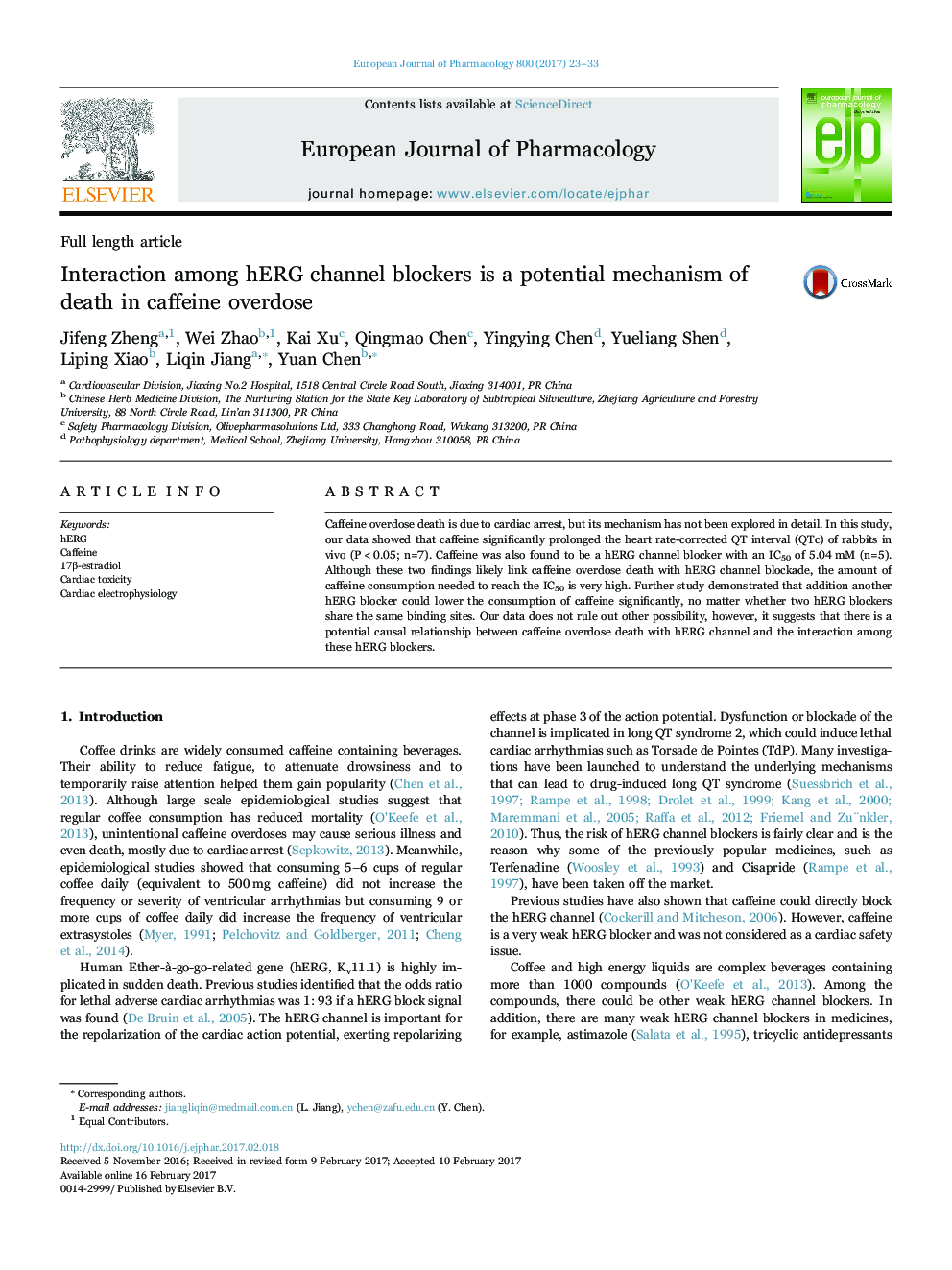| Article ID | Journal | Published Year | Pages | File Type |
|---|---|---|---|---|
| 5554644 | European Journal of Pharmacology | 2017 | 11 Pages |
Caffeine overdose death is due to cardiac arrest, but its mechanism has not been explored in detail. In this study, our data showed that caffeine significantly prolonged the heart rate-corrected QT interval (QTc) of rabbits in vivo (P<0.05; n=7). Caffeine was also found to be a hERG channel blocker with an IC50 of 5.04Â mM (n=5). Although these two findings likely link caffeine overdose death with hERG channel blockade, the amount of caffeine consumption needed to reach the IC50 is very high. Further study demonstrated that addition another hERG blocker could lower the consumption of caffeine significantly, no matter whether two hERG blockers share the same binding sites. Our data does not rule out other possibility, however, it suggests that there is a potential causal relationship between caffeine overdose death with hERG channel and the interaction among these hERG blockers.
